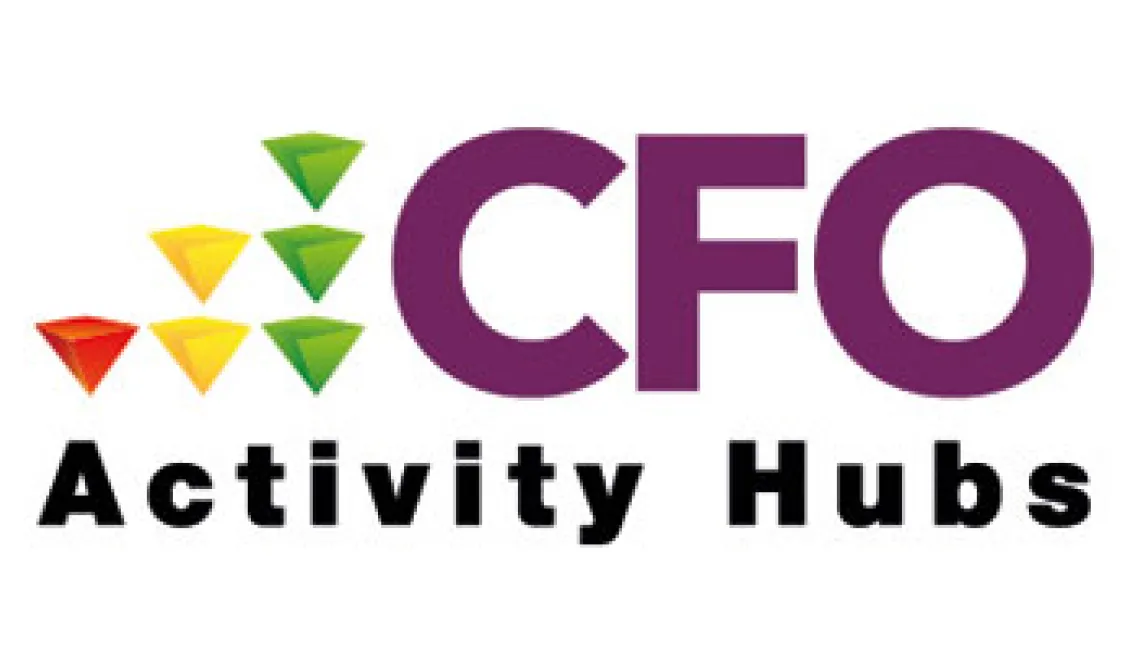We spoke to Joanne Wood (Head of Service, CFO Activity Hubs) from Interventions Alliance (part of the Seetec group) about this service which aims to provide a comprehensive framework of support to encourage desistance, help participants overcome barriers into work and reintegrate into their local communities.
About the CFO Activity Hubs
“After serving 28 years in prison, it’s only the place that’s worked for me and kept me out of prison”
There are six CFO Activity Hubs, located in Chatham (Kent), Hastings (East Sussex), Bristol, Liverpool, Manchester and Warrington.
Funding
The CFO Activity Hubs project is funded by His Majesty’s Prison & Probation Service Co-Financing Organisation (HMPPS CFO). HMPPS CFO is a European Social Fund resettlement support programme, which delivers projects aimed at improving employability, changing lives and reducing reoffending. This funding is in place until October 2023, after which new funding streams will need to be sourced.
Eligibility Criteria
The hubs are for those who are unemployed, over 18 and on probation. They also work with individuals for 90 days post-sentence, supporting them through the transitional period at the end of their licence period, post-sentence supervision, community order or suspended sentence order. This ensures that not all support ends at once.
Priority groups include people from minority ethnic communities, people with disabilities and health conditions, including those linked to substance misuse, over 50s, ex-service personnel and women.
Referrals
Participants may be referred directly to the activity hub by any agency. Most referrals are from The Probation Service, as they are the key stakeholder, but referrals also come in from several different routes that include the Department for Work and Pensions, the police, prisons, NHS, housing providers, as well as voluntary sector organisations such as substance misuse services. This is alongside self-referrals.
There is regular liaison with a Probation Offender Manager to align the intervention with sentence plans and manage risk.
Activities
“My journey so far at the Hub has made me improve my social skills… I used matchsticks in my first session here and made something with patience I didn’t know I had”
The range of support provided is broad and tailored to the individual. Activities are designed according to three themes:
- Human and citizenship. These consist of activities and projects to build self-esteem, enable participants to make positive plans for the future, foster altruism and develop team working skills.
- Community and social factors. These activities build personal resilience, strengthen support networks and upskill participants. They enable participants to overcome barriers such as lack of work experience, low educational achievement and weak family/community ties, as well as practical support to engage with mainstream services.
- Interventions and services. These activities provide a supported pathway into an existing service, which are aimed at reducing reoffending and not funded by this programme (such as accredited programmes, substance misuse provision and Restorative Justice).
Although the team works closely with statutory organisations, attendance is voluntary and cannot have enforcement action attached to it. However, the hubs do design a Hub Charter alongside participants, which outlines a set of standards and mutual expectations.
The hubs holistically support individuals by providing activities, such as arts and crafts, cooking, sports, music, drama and media that build their self-esteem, identity, and self-worth. These activities are basic but essential as individuals may not have access to them. Further activities involve looking at the specific needs of individuals, such as housing needs, employment needs, help with CVs, accessing local healthcare, referrals to GPs, or supporting them to integrate within their local community. This includes participating in local voluntary projects, such as working on an allotment or working with those not involved in the criminal justice system. This all helps to build self-worth and confidence.
The hubs also work with individuals on licence to fulfill the conditions of the community orders and to complete accredited courses alongside the Probation Service. They also provide a degree of wrap-around support. For example, a homeless individual accessing the hub may come in to have a hot meal before they attend their intervention or to put some skills that they learned in the last session into practice so that they are more confident going in.
Inclusivity
“So far my journey in the Hub has been interesting and I must say inclusive”
The hubs are a warm and welcoming environment: participants have been encouraged to design the hubs to be their own space, where they can feel a sense of community and belonging and start to make changes in their lives. In some hubs, participants have drawn graffiti art on the walls or completed murals.
The hubs work with individuals at every risk level including those subject to multi-agency public protection arrangements (MAPPA), those who have committed sexual offences and high-profile national security division cases. Support is tailored to each individual based on their needs and their risk.
Evaluation
CFO has an evaluation team to examine the impact of the Activity Hubs. They look to evaluate the impact at different points in the service users' journeys: at 90 days of engagement and at 180 days of engagement. Feedback forms are also completed by participants at the end of each session/activity and service users have the opportunity to participate in forums to provide feedback and shape the service.
“The support I’ve received has been astronomical. I’m proud to be part of the Hub”
If you would like to learn more about the CFO Activity Hubs, please contact Joanne Wood at Joanne.Wood@interventionsalliance.com
This case study was compiled by Maysa Clam and Isabella Anderson in 2022.
Click here to return to the Map
